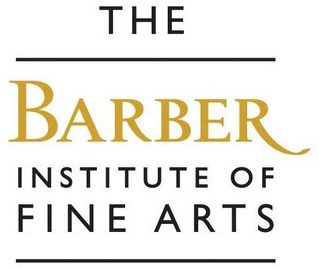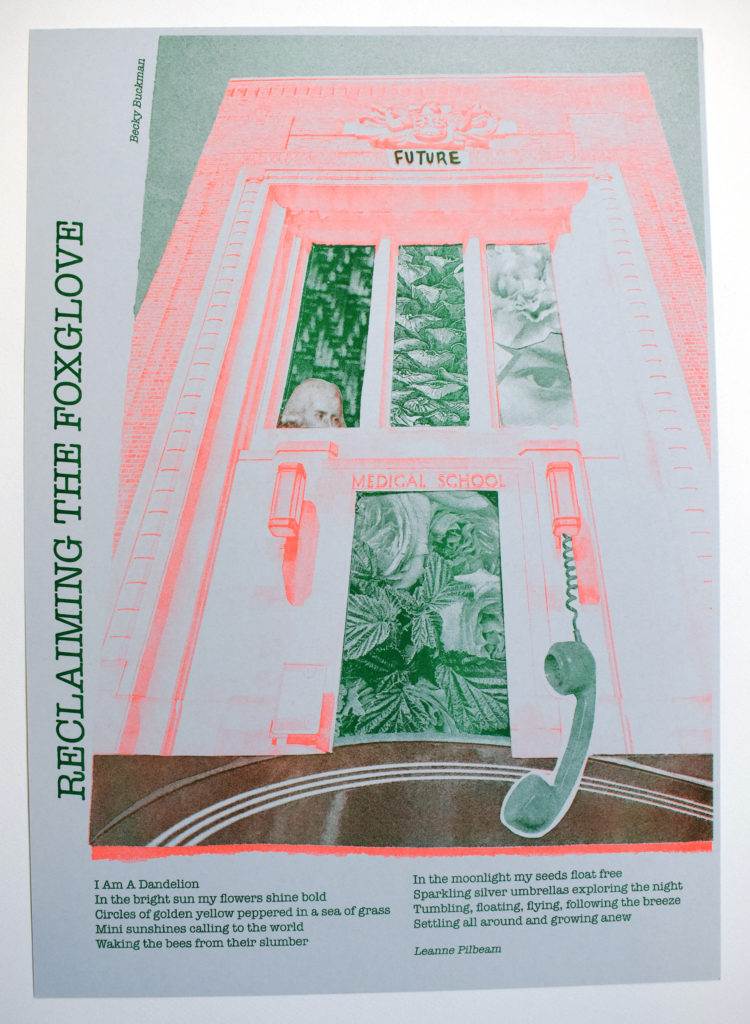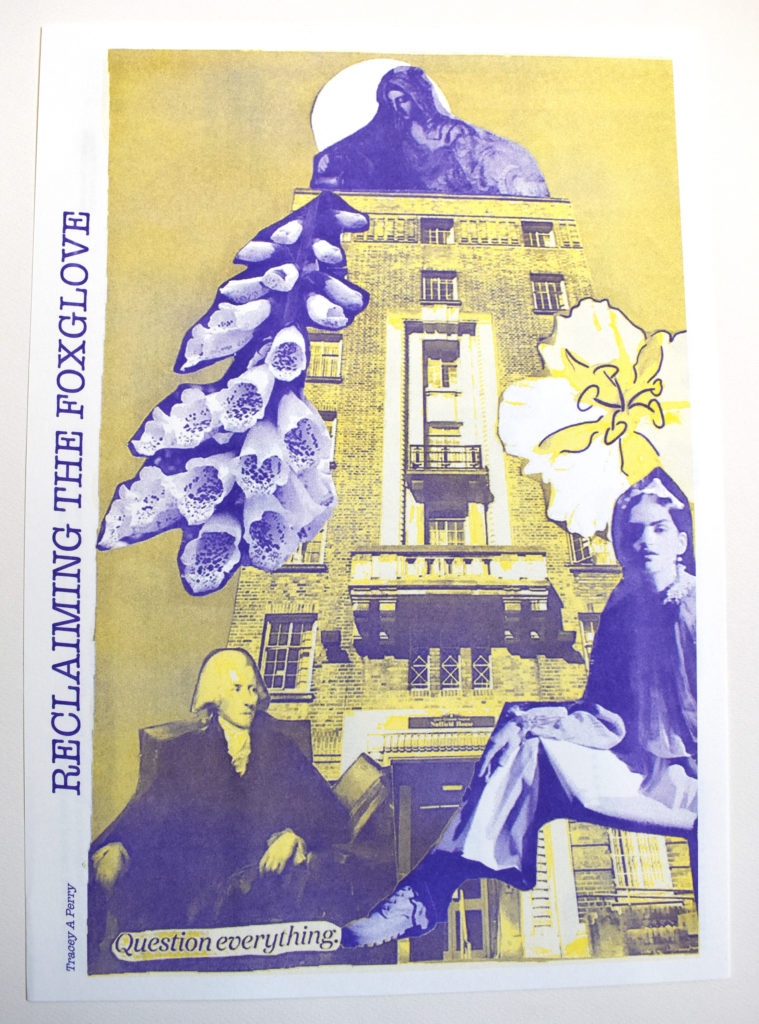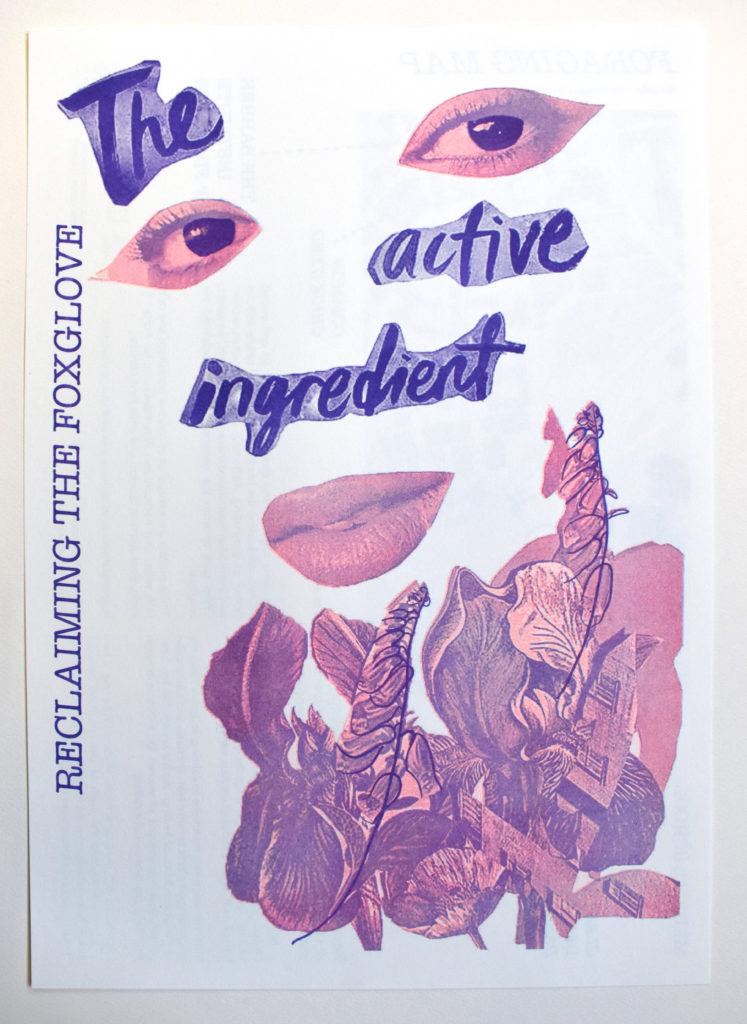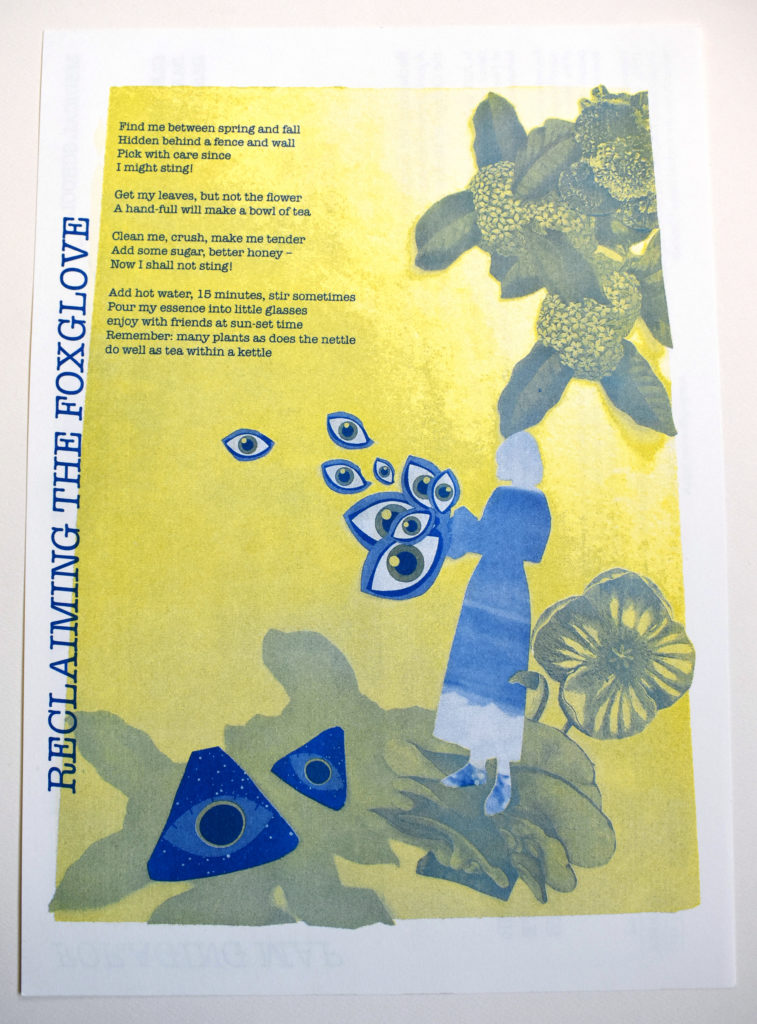Reclaiming the Foxglove, Cultivating Narratives
A joint project between the Barber Institute of Fine Arts and the College of Medical and Dental Sciences (MDS)
In 2021, students and staff from the College of Medical and Dental Sciences joined forces with the Barber Institute of Fine Arts to explore herbalism’s forgotten voices and tales through a series of creative workshops, Reclaiming the Foxglove.
Inspired by the Medical School’s portrait of William Withering (1741-1799), we recounted the myth of the unnamed herbalist whose healing hedgerow tea formed the basis of Withering’s research into the medical uses of Digitalis.
From the screaming mandrake to calming St John’s Wort, the use of foraged plants to make teas, tinctures, and elixirs is one of the oldest forms of healing. Herbal knowledge has been passed down through generations of women through anecdote, practice, and storytelling for millennia.
Over four workshops student and staff were joined by:
- Writer and horticulturist Alys Fowler for a talk that looked at the history of tea as medicine exploring herbal medicine, folklore and home remedies. Alys and students looked at some of the simple recipes still used today and how to forage and harvest herbs from around the UoB and brew them for their medicinal properties.
- Writer Adrian B. Earle for a micro-fiction workshop, reimagining the myths and history of Digitalis and its journey from potion ingredient to modern medical treatment. Using short creative writing exercises, we invited students and staff to explore the gaps in what they know about the botanical narrative of the foxglove.
- Poet Jasmine Gardosi for a writing workshop inspired by folklore and the ingredients used in traditional herbal remedies, drawing from our own wisdoms, histories and experiences as our personal herb garden to brew poems in the form of recipes.
- Artist Kirsty Clarke for a collage making workshop that used botanical drawings, found images and photos to create informal and playful montages. Students and staff reflected on the significant role women have played in developing plant science, notably through creating the botanical illustrations that physicians, pharmacists and scientists used for identification, analysis, and classification.
We came together and drank tea, created art, and shared stories, celebrating the healing power of storytelling. Reflecting on the hidden women and forgotten knowledge behind these powerful plants, we asked, “who gets to write the narrative?” as we reclaimed the foxglove.
The workshops resulted in a series of riso-printed posters, offering a snapshot of the creative outputs and conversations that formed between the writers, artists, students and staff.
A special thanks to all students and staff who participated.
Read an overview of the project here.
Artists and facilitators
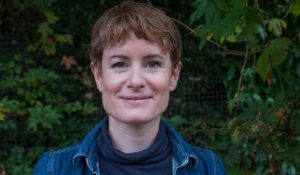
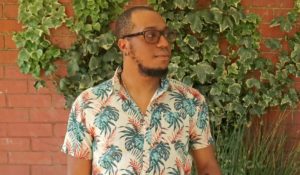
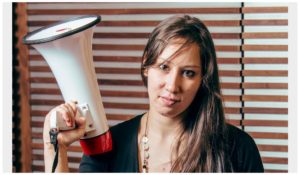
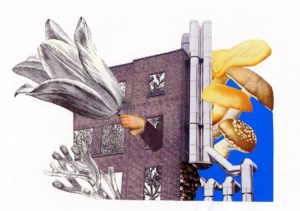
Images © the image holder, used only with permission.
